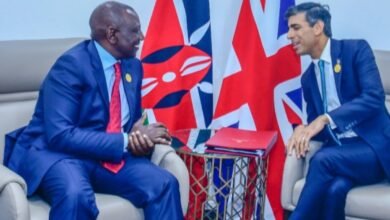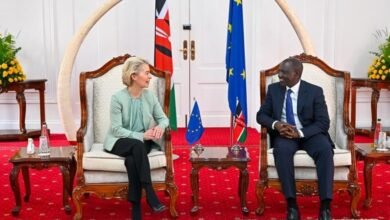
National holidays in Kenya have gone through interesting twists and turns since the country attained its independence in 1963, and became a republic in 1964.
For a long time, there was very little clarity about what constituted a national holiday and why these were created.
They seemed to be named at the whim of presidents or, at the very least, with presidents in mind.
In 2010, a new constitution was promulgated. This brought a fresh and well-defined meaning to national holidays. Article 8 of the 2010 Constitution recognises Kenya’s three national days as Madaraka Day (June 1), Utamaduni Day (October 10) Mashujaa Day (October 20) and Jamhuri Day (December 12).
Initially, Mashujaa Day was known as Kenyatta Day and was celebrated in honour of Kenya’s founding President Mzee Jomo Kenyatta and a few other freedom fighters.
However, after the new constitution was promulgated on August 24, 2010, the name was changed, marking a new beginning in Kenya’s history for all Shujaas.
Former Prime Minister and ODM leader Raila Odinga explained the reasoning behind the original celebrations on October 20.
While in Bukhungu Stadium in Kakamega County, he divulged that the day was first commemorated in 1958 when the State of Emergency was declared by colonialists in Kenya.
He further revealed that legislators went on a hunger strike to protest the incarceration of Mzee Jomo Kenyatta and other political prisoners.
“Iilikuwa wakati wa hali ya hatari, wale viongozi wa Waafrika katika Bunge wakaamua ati hakuna kula, kunywa na kuvuta sigara na kutembea kwa mabasi.”
“(It was during the State of Emergency, African representatives in the Legislative Council (LegCo) went on a hunger strike and also refrained from using public transport),” he stated.
He added that: “Mwaka iliyofuata, wakasema tarehe ambaye hali ya hatari ilitangazwa, itakuwa Kenyatta Day sababu walikuwa wanapigania kuachliwa huru kwa Mzee Kenyatta.”
“(The following year the representatives organized public demonstrations on the day when the state of emergency was declared to pushing for the immediate release of Mzee Kenyatta).”
That year, Mzee Jomo and his companions completed three-quarters of their sentence of imprisonment and became eligible for release.
Also Read:
- Kirinyaga residents reap big from this year’s Mashujaa Day fete
- Last of Kirinyaga’s Mau Mau Generals passes on, bullet still in the body
- President Kenyatta promises improved tea bonuses for Mt. Kenya farmers
However, a restriction order was immediately applied and he was detained at Maralal, 90 miles south of Lodwar.
After Kenya got independence in 1963, the date was embedded in the law as Kenyatta Day until 2010 when the new constitution renamed the public holiday to Mashujaa Day to honour all Kenyan heroes.
Four key lessons drawn from this move to honour heroes from all walks of life can be drawn from Ukraine’s Day of Defender:
1. It Takes Courage
2. Perseverance Is A Virtue
3. Mashujaa Make Us Patriotic
4. Free To Elect Leaders
Great heroes are recognised the world over because of the role they play in making their countries progress. Kenya has not been left behind and follows in the footsteps of countries like Ukraine that celebrate the Day of Defender on October 14.
When the independence of a country’s internal processes is doubtful, then automatically your authority is undermined, a scenario that negates what Kenyan Mashujaa fought for.
A country’s independence means the electorate is free to vote for their leader of choice without external interference or intimidation. This is at the heart of sovereignty and explains why Kenya has had to postpone elections in different regions in the past.
Kirinyaga County is hosting this year’s Mashujaa Day celebrations and joins Nakuru, Machakos, Meru, Nyeri, Kakamega, Mombasa, Narok, and Kisii that have hosted two of the three national holidays since 2015 when President Uhuru Kenyatta directed that the celebrations be held outside Nairobi on a rotational basis.
However, due to coronavirus restrictions, the government suspended parallel Mashuja Day celebrations in counties to curb the spread of the disease.





